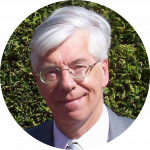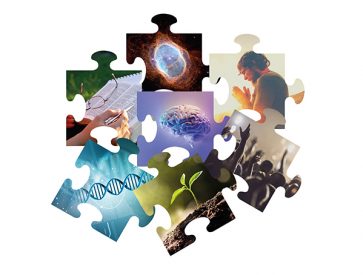How can we reconcile Genesis and evolution? What does it mean to be human in an age of AI? Does science remove the possibility of miracles? How do non-Christians think about science and faith questions? What does God think of IVF? How do we interpret the fall if the earth is billions of years old?
Explore these questions and many others at our two day workshop designed for Christian leaders – whether ordained, lay, or active and experienced members of a local church. Participants will be equipped to engage with scientific issues in the day-to-day life of their ministry context.
This workshop will cover contemporary topics in the dialogue between Science and the Christian Faith, including Artificial Intelligence, Bioethics, Evolution, and Miracles.
Open to all church leaders – no scientific background required.
Cost: £75/£50 (standard, Cambridge/Online), £50/£30 (students, Cambridge/online)
Any questions please contact: events@faraday.cam.ac.uk
Provisional Programme 
Friday, 10am – 6pm
Dr Nick Spencer – Moving Away from the Shallow End: Attitudes to Science and Religion in the UK today

Abstract: The British public overwhelmingly sees science and religion as incompatible with one another. At least, that’s what the headline figure says. But if you press a bit more deeply on it, a more interesting picture emerges. There is still perceived ‘hostility’ there but it’s complex, varied and depends quite a bit on what we think science is and what we think religion is. Examining that can help clarify and enrich the whole science and religion debate.
Dr Mike Brownnutt – Global Perspectives on Science and Christianity

Abstract: Christianity has a rich diversity of expressions around the world. Similarly, science – and people’s engagement with it – takes on diverse forms in different times, places, and cultures. It should therefore not be surprising that – in considering the interaction of science and Christianity – there is a radical diversity of questions that people have, answers that people find acceptable, and opportunities that arise for engagement. This talk will look at various global frames for discussion. These have direct applications for congregations; both for engaging with people from cultures beyond the UK, and for engaging with people from UK cultures in fresh ways.
Prof Hugh Rollinson & Dr Ruth Bancewicz – Creation and Evolution: An introduction


Abstract: This topic is often the elephant in the room in discussions of science and faith. We will suggest, through personal story from Hugh, that it is good to teach on aspects of this subject regularly. Ruth will give some theological background, suggesting some ways of opening up the conversation, ideas for preaching, and resources to follow up.
Matt Fell – Creation and Evolution: Digging deeper

Abstract: In this session, we’ll take hold of those thorny questions that cause many Christians to hesitate before affirming modern evolutionary science. Does evolution deny the unique identity of human beings made in God’s image? What about Adam and Eve? How can the doctrine of the fall fit with an evolutionary account of human intelligence and morality? What about all the suffering that Darwinian evolution inscribes within the heart of nature? We’ll see that the Bible isn’t as prohibitive of evolutionary ideas as we instinctively think, and that modern evolutionary thought isn’t as reductionistic as it is often caricatured.
Saturday, 9am – 4.30pm
Steph Bryant – Exploring Big Questions with Children and Young People

Abstract: ‘Does science disprove God?’; ‘Can the Bible be true if it doesn’t mention dinosaurs?’; ‘Could robots or aliens be religious?’; ‘What really makes me ‘me’?’.
These questions, and many more, are frequently asked by young people in schools and churches, but they are rarely afforded the opportunity to explore them.
Despite a long history of deeply positive interaction between science and religious faith, today’s culture maintains a strong narrative that the two are in conflict. Whilst most obvious conversation on this topic occurs amongst adults, research demonstrates that by the age of 11 many children already view science and faith as disengaged or conflicting, and often feel the need to choose between these vital areas of thinking.
In recent years, a number of projects have focused on providing positive opportunities to help young people, and those who influence them, explore their questions about the interactions of scientific and religious thinking. In this talk, Steph Bryant will review some relevant research, the growing positive impact of various interdisciplinary approaches and some of the methods and resources available to help communicate a positive message of science-faith interactions with children and young people, supporting them in their search for answers to life’s big questions.
Matt and Davinder Gardner – Miracles: Can God Break Science?


Abstract: In this interactive session we will explore events that stand alone – miracles. Our universe is built on scientific laws that bring understandable, explainable order. Our day-to-day life is built on these laws – from every breath to every webpage we look at on our phones. Miracles might represent a violation of these laws and a defiance of science. We will investigate what other forms of evidence could help us see if these incredible events truly happen.
Could and would God cause a one-off exception to the laws He had written?
Dr Rachel Siow Robertson & Revd Charmaine Mhlanga – Artificial Intelligence


Abstract: This session addresses some of the hopes and fears that people – especially church leaders and members – have about the use and development of Artificial Intelligence.
It will take the form of a dialogue between Revd. Mhlanga, a Baptist minister who approaches AI and freedom from a theological and pastoral perspective, and Dr Robertson, a philosopher who focuses on the impact of digital technologies on our characters and our joy. Together, we’ll suggest some guidelines and uses for AI which aim to support flourishing together in community.
Dr Denis Alexander – Bioethics: Key issues for busy Church leaders
 Abstract: This talk will start by introducing an ‘ethical tool-kit’ – a set of four ethical approaches commonly used by ethics committees when considering what to do about a new scientific discovery. We will then consider some ‘hot new issues’ that church leaders might be asked about because they are prominent in the media. How can we use our ethical tool-kit to address those issues? And what difference does our Christian faith make to how those ethical tools are used? The precise list of issues may change on the morning of the talk – science is moving so fast. But the issues could include: ‘Is Same Sex Attraction genetically determined?’; ‘Would Jesus heal embryos? If so, should we?’; ‘Is it a good idea to give people genetic data that will predict their future probability of developing a particular disease?’.
Abstract: This talk will start by introducing an ‘ethical tool-kit’ – a set of four ethical approaches commonly used by ethics committees when considering what to do about a new scientific discovery. We will then consider some ‘hot new issues’ that church leaders might be asked about because they are prominent in the media. How can we use our ethical tool-kit to address those issues? And what difference does our Christian faith make to how those ethical tools are used? The precise list of issues may change on the morning of the talk – science is moving so fast. But the issues could include: ‘Is Same Sex Attraction genetically determined?’; ‘Would Jesus heal embryos? If so, should we?’; ‘Is it a good idea to give people genetic data that will predict their future probability of developing a particular disease?’.




